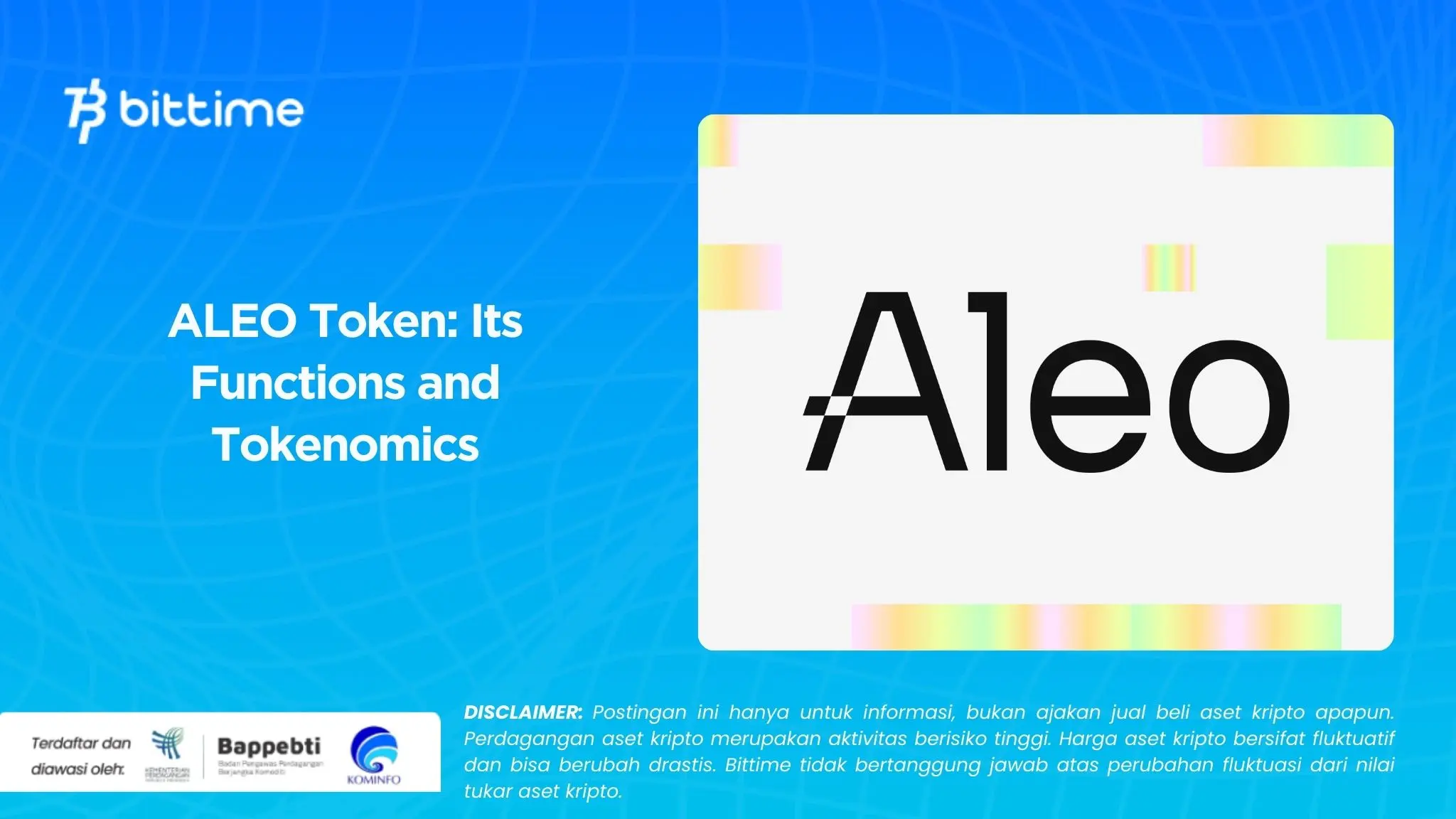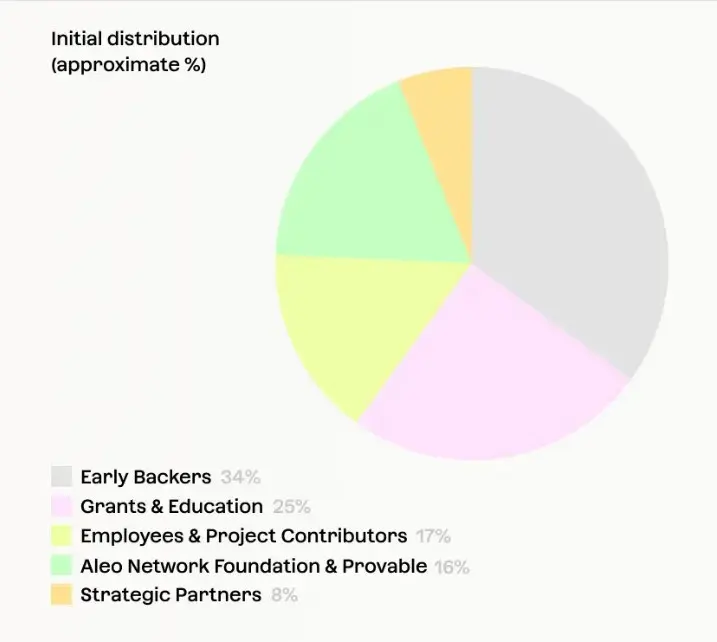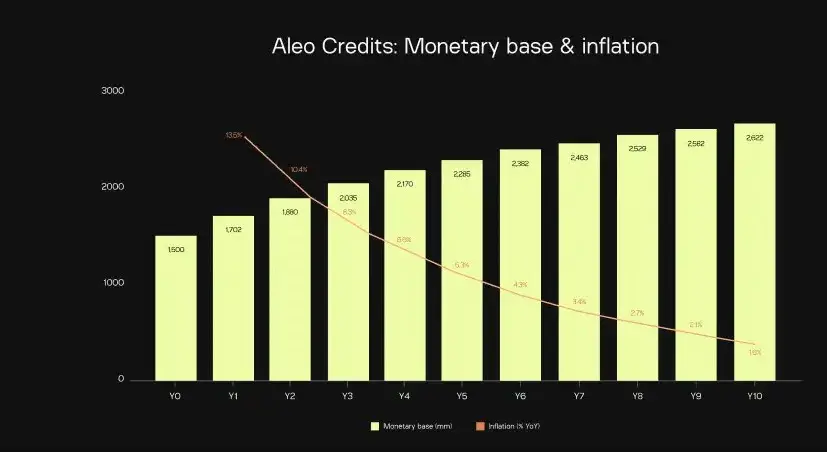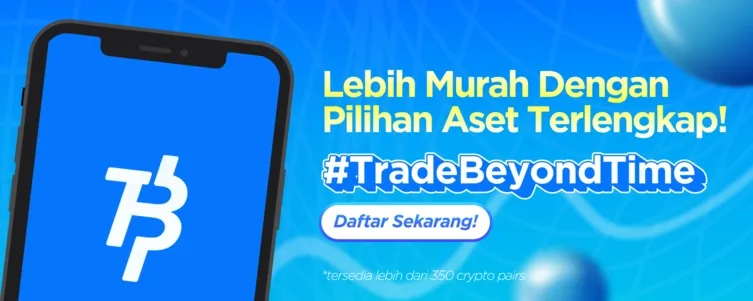ALEO Token: Its Functions and Tokenomics
2024-11-04
Bittime - The ALEO token is present as the heart of the Aleo Network. It is a crypto network designed to provide a more secure and private internet experience.
By relying on Zero-Knowledge (ZK) technology, Aleo enables users and developers to participate in a transparent and reliable decentralized ecosystem.
Through a carefully designed tokenomics system, Aleo wants to create an ecosystem that supports collaboration, active participation and network sustainability.
ALEO token, as a native asset in this network, provides various functions. This makes it an important element for the ever-growing Aleo ecosystem. This article thoroughly examines the function, tokenomics, and distribution of ALEO tokens in supporting a dynamic and sustainable ecosystem.
What is ALEO Token?
The ALEO token is the native token of the Aleo Network designed to facilitate transactions, support verification processes, and access services provided by decentralized service providers on this network.
Instead of being tied to a single entity, Aleo users can interact with an open-source ecosystem consisting of independent nodes on the internet.
The ALEO token itself is not an investment instrument, but rather a tool for accessing services on this network. In this model, the ALEO token gives users and developers the power to access resources and verify data.
These tokens also compensate service providers who provide their time and computing resources.
Read also: Tips and Tricks for Using Dexscreener for Crypto Analysis
ALEO Token Functions
ALEO tokens serve several important roles in the Aleo network designed to provide more value to users and support network operations. Following are the main functions of the ALEO token:
1. Access to Network Resources: Users use ALEO tokens to pay for blockspace access and computing resources on the Aleo network. This token is required to send and process transactions within the network.
2. Incentivizing Network Participants: Validators and provers in the network are rewarded with ALEO tokens as an incentive for their contribution to maintaining network security and ensuring transactions run smoothly.
3. Staking and Network Security: ALEO tokens can be staked with validators to generate blocks and maintain network security. The staker then receives a share of the network rewards in return.
4. Supports Governance: After mainnet launch, ALEO token holders have the right to participate in decentralized network governance, such as voting on protocol updates and rule changes.
ALEO Token Tokenomics

Source: Aleo Network
Aleo's tokenomics system is designed to create strong economic incentives and ensure smooth network participation. At launch, the total supply of ALEO tokens will reach 1.5 billion.
The network consensus system will automatically generate new tokens to reward provers and stakers who follow the protocol rules honestly. In the long term, Aleo Network hopes to maintain the network's economic balance through these incentives.
ALEO token distribution is as follows:
34% for Early Backers: A large number of tokens are allocated to early supporters who contributed to building the network.
25% for Grants, Ecosystem Contributors, and Education: This token is used to support projects that improve the Aleo ecosystem.
17% for Employees and Project Contributors: This section is allocated for internal development.
16% for Aleo Foundation and Provable: Help support network sustainability through development.
8% for Strategic Partners: Maintain important relationships with parties who contribute to the development of Aleo.
ALEO Token Distribution Changes

Source: Aleo Network
ALEO token distribution will naturally change over time. Validators and provers, who have fixed and variable operational costs, will likely sell some of the tokens they earn to pay expenses.
As a result, token distribution will slowly move from initial holders to other network participants. Rewards for validators are set at a constant emission rate of 23 tokens per block, which will continue in the long term.
Algorithmically, token distribution will continue to change. Rewards for staking and proving are expected to increase the number of tokens in circulation by around 75%, from 1.5 billion to more than 2.6 billion in ten years.
The emission rate will decrease from 13.5% in the first year to 1.6% in the tenth year, creating controlled inflation and maintaining economic stability in the network.
Read also: Top 10 Murad Memecoins Supercycle for 2024
Conclusion
The ALEO token is not just a crypto asset, but an instrument that supports the sustainability and independence of the Aleo network. Through functions such as service access, economic incentives, staking, and governance, the ALEO token plays an important role in creating a transparent, secure, and powerful ecosystem.
With a scalable tokenomics model and closely monitored distribution, Aleo is committed to building an inclusive network for developers and users, paving the way for privacy and security-based technological innovation.
As a new player in the crypto world, Aleo with its tokenomics has the potential to become a model for community and sustainability-oriented crypto platforms.
How to Buy Crypto on Bittime

Want to trade sell buy Bitcoins and crypto investment easily? Bittime is here to help! As an Indonesian crypto exchange officially registered with Bappebti, Bittime ensures every transaction is safe and fast.
Start with registration and identity verification, then make a minimum deposit of IDR 10,000. After that, you can immediately buy your favorite digital assets!
Check the exchange rate BTC to IDR, ETH to IDR, SOL to IDR and other crypto assets to find out today's crypto market trends in real-time on Bittime.
Disclaimer: The views expressed belong exclusively to the author and do not reflect the views of this platform. This platform and its affiliates disclaim any responsibility for the accuracy or suitability of the information provided. It is for informational purposes only and not intended as financial or investment advice.




